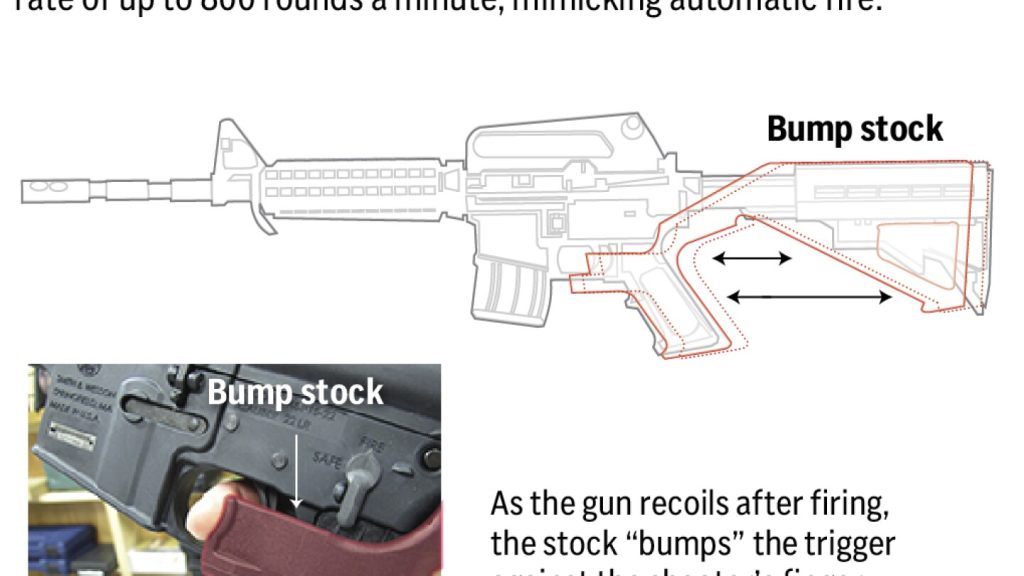The U.S. Supreme Court has struck down a ban on bump stocks, the gun accessory used in the 2017 Las Vegas massacre that killed 60 people and injured hundreds. The court’s conservative majority found that the 2019 ban imposed by the Trump administration overstepped its authority, as bump stocks allow semiautomatic weapons to fire like machine guns. Bump stocks are accessories that use a rifle’s recoil energy to rapidly fire bullets, allowing the weapon to shoot multiple rounds in seconds. The federal government approved the sale of bump stocks in 2010 after determining they were not illegal machine guns under federal law.
The ban on bump stocks was implemented following the Las Vegas shooting, where the shooter used weapons fitted with bump stocks to fire over 1,000 rounds in just 11 minutes. The ATF, under Trump’s administration, ordered the ban on bump stocks in 2018, arguing that they converted rifles into illegal machine guns. Bump stock owners were given until March 2019 to surrender or destroy their devices. However, the Supreme Court ruled 6-3 that the ATF did not have the authority to issue the regulation banning bump stocks. Justice Clarence Thomas wrote the majority opinion, stating that bump stocks do not turn weapons into illegal machine guns as they do not fire more than one shot with a single pull of the trigger.
At least 15 states and the District of Columbia have their own bans on bump stocks, but the Supreme Court’s ruling only affects the ATF regulation, not state-level bans. The case was brought before the Supreme Court by the New Civil Liberties Alliance on behalf of a Texas gun shop owner who surrendered his bump stocks after the federal ban. The Alliance argued that the ATF had overstepped its authority by banning bump stocks, rather than Congress passing legislation to do so. The case reached the Supreme Court after lower federal courts had conflicting rulings on the ATF’s ability to ban bump stocks.
The court’s decision was split along ideological lines, with the conservative majority ruling in favor of striking down the bump stock ban. Justice Samuel Alito, who joined the majority, acknowledged the tragic events of the Las Vegas shooting but stated that any changes to the law to outlaw bump stocks as machine guns should come through congressional action, not regulation. The dissenting liberal justices argued against the ruling, with Justice Sonia Sotomayor stating that there is no meaningful difference between a machine gun and a semiautomatic firearm with a bump stock. While the Supreme Court’s decision invalidates the ATF regulation, individual states may still enforce their own bans on bump stocks.


